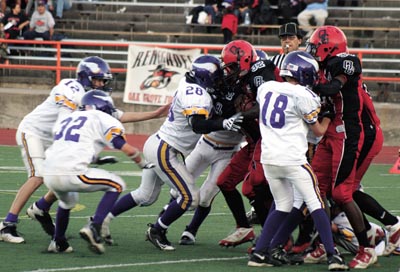We recently got a cockatiel named Burt from a friend. Burt was
happy at his old home and sang a lot. But now he seems quiet and
looks a little sick. I noticed he seems to fluff his feathers when
we open the window, so I know he likes fresh air. But now he seems
fluffy all the time. What can we do to make him happy?
Q: We recently got a cockatiel named Burt from a friend. Burt was happy at his old home and sang a lot. But now he seems quiet and looks a little sick. I noticed he seems to fluff his feathers when we open the window, so I know he likes fresh air. But now he seems fluffy all the time. What can we do to make him happy? Should we get another bird to keep him company?
A:
Your description of Burt makes me think he may be a very sick little bird. Change in behavior can sometimes indicate underlying illness. All this could also be related to stress. And there’s no doubt that he’s gone through a considerable amount of stress with his recent change in scenery. But when he “fluffs” his feathers, he’s probably indicating that he doesn’t feel well. This behavior can be a sign of trouble in many birds.
Part of his problem is the location of his cage enclosure. You mention that it’s near a window. This is a poor location for a birdcage because drafts cause rapid change in temperature. It can be particularly serious when the weather fluctuates as much as ours has in the past few weeks. Warm days followed by cold nights with wind can make a small bird very sick.
I’m worried about Burt. I think his condition is potentially very serious; birds don’t typically show outward signs of illness until their disease is advanced. I believe you need to take him to an avian veterinarian right away. Once he is treated and recovered, talk to someone about proper care for cockatiels. Good husbandry is essential to good health for these little guys.
Q:
McGee (our happy, goofy lab) won’t let me brush his teeth. I’ve trained him to do a thousand different tricks, but he won’t let me touch his mouth with a brush. I did all the things that the vet suggested, and we tried different brushes and pastes. But he is adamant and we aren’t going to get him to cooperate. How often should we get his teeth checked? Will he need to have his teeth cleaned by the vet?
A:
Actually, there are lots of dogs that just won’t accept daily brushing. Training a puppy to brush is tough, but getting an adult dog to cooperate can be even more difficult.
Your questions are good ones. How likely will McGee need periodic teeth cleaning? It all depends on him. Some dogs require cleaning as often as twice each year, while others may only need this kind of treatment every one to two years. He should be examined at least once each year when he has his wellness examination and vaccine review. Then his vet can lay out the best plan for him. While you’re there, talk to his veterinarian about what treats might be best for preventing dental problems. Some over-the-counter products can actually help prevent periodontal disease. Use these, and you can teach that happy dog some more goofy tricks and help clean his teeth at the same time.
Q:
Our horse, Barney, just went through a bout of colic, and the vet isn’t really sure what caused it. Now he says we should feed him off the ground because he might be picking up dirt as he eats. I’m worried that Barney will be stressed because he’s always eaten hay that we throw out to him in the pasture. And besides, he eats grass from the ground. Is eating from some feeder really all that important?
A:
In short, I don’t think anyone can tell. But it can’t hurt and I, too, recommend the same plan. Barney’s vet was unsure of the cause for his colic, so you should take all the precautions you can. Horses that eat hay off the ground often pick up small bits of dirt and sand as they eat. This is different than when they graze on a pasture. Grazing horses usually break off the grasses as they eat, leaving behind the bottom portion (and any dirt or sand). If Barney’s problem was related to sand in his intestines, you certainly don’t want him swallowing more sand as he eats.
Intestinal colic in horses can be caused by many different things. But since Barney’s vet couldn’t pinpoint a diagnosis, he made a safe and logical recommendation for feeding. And even though he hasn’t eaten from a feeder before, he should have no problem with the transition. Chances are, he’ll like it even better. By the way, feeding up off the ground helps prevent some parasite problems as well. So all in all, this will be healthier for Barney no matter what.








